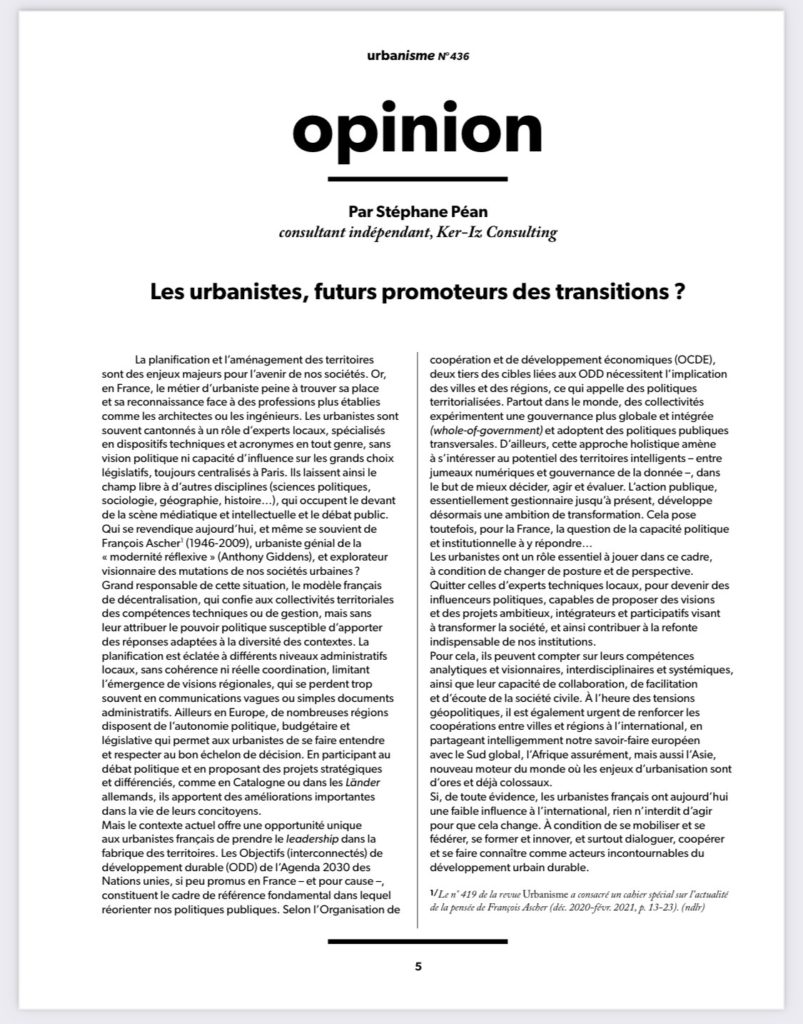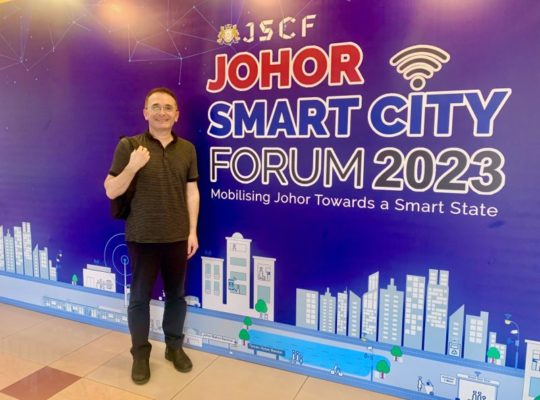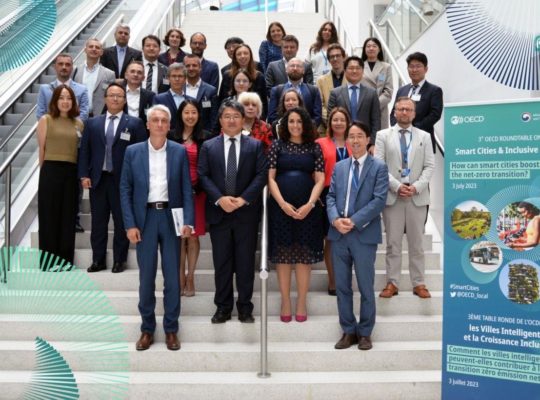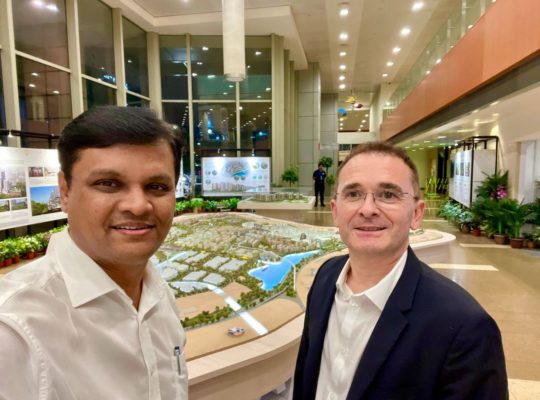In France, urban planners face challenges in gaining recognition compared to architects and engineers. The decentralization model limits their influence, leaving room for other disciplines. However, the United Nations’ Sustainable Development Goals (SDGs) offer an opportunity for French urban planners to shape territories. By embracing holistic approaches, interdisciplinary skills, and collaboration, they can transform society and contribute to institutional reform. International cooperation is also crucial, especially with regions facing significant urbanisation challenges.
Translated from a personal opinion written in the French review Urbanisme (n°436) entitled “The world needs urban planners”
The planning and development of territories are major challenges for the future of our societies. Yet, in France, the urban planner profession struggles to find its place and recognition compared to more established professions such as architects or engineers. Urban planners are often relegated to the role of local experts, specialised in technical methods and all sorts of acronyms, without political vision or the ability to influence major legislative decisions, which remain centralised in Paris. This leaves the field open to other disciplines (political science, sociology, geography, history…), which occupy the forefront of the media and intellectual scene and public debate. Who today claims, or even remembers, François Ascher 🇫🇷 (1946-2009)1, the brilliant urban planner of ‘reflexive modernity’ (Anthony Giddens 🇬🇧), and visionary explorer of the transformations of our urban societies?
A major culprit in this situation is the French model of decentralisation, which entrusts local authorities with technical or management competencies but without granting them the political power to provide responses suited to the diversity of contexts. Planning is fragmented across various local administrative levels, without coherence or real coordination, limiting the emergence of regional visions, which too often get lost in vague communications or simple administrative documents. Elsewhere in Europe, many regions have political, budgetary, and legislative autonomy that allows urban planners to be heard and respected at the right decision-making level. By participating in political debate and proposing strategic and differentiated projects, as in Catalonia (Spain) or the Länder (Germany), they bring significant improvements to the lives of their fellow citizens.
However, the current context offers a unique opportunity for French urban planners to take the lead in shaping territories. The (interconnected) Sustainable Development Goals (#SDGs) of the United Nations’ 2030 Agenda, so little promoted in France – and for obvious reasons -, constitute the fundamental reference framework within which to reorient our public policies. According to the OECD Centre for Entrepreneurship, SMEs, Regions & Cities, two-thirds of the SDG targets require the involvement of cities and regions, calling for localised and place-based policies. Around the world, communities are experimenting with more global and integrated governance (whole-of-government) and adopting cross-cutting public policies. Moreover, this holistic approach leads to an interest in the potential of smart territories – between digital twins and data governance – with the aim of making better decisions, taking actions, and evaluating them. Public action, essentially managerial until now, is now developing an ambition for transformation. This raises, however, the question for France of the political and institutional capacity to respond…
Urban planners have an essential role to play in this context, provided they change their posture and perspective. Leaving behind the roles of local technical experts, to become political influencers, capable of proposing ambitious, integrative, and participatory visions and projects aimed at transforming society, and thus contributing to the indispensable overhaul of our institutions. For this, they can rely on their analytical and visionary competencies, interdisciplinary and systemic, as well as their capacity for collaboration, facilitation, and listening to civil society.
In times of geopolitical tensions, it is also urgent to strengthen cooperation between cities and regions internationally, by intelligently sharing our European expertise with the global South, certainly Africa, but also Asia, the new engine of the world where urbanisation challenges are already colossal. If, evidently, French urban planners today have little international influence, nothing prohibits acting to change this. Provided that they mobilise and unite, train and innovate, and above all, dialogue, cooperate, and make themselves known as key players in sustainable urban development.

- Issue 419 of the Urbanisme review dedicated a special notebook to the current relevance of François Ascher’s thought (Dec. 2020-Feb. 2021, p. 13-23). (Editor’s note) ↩︎







